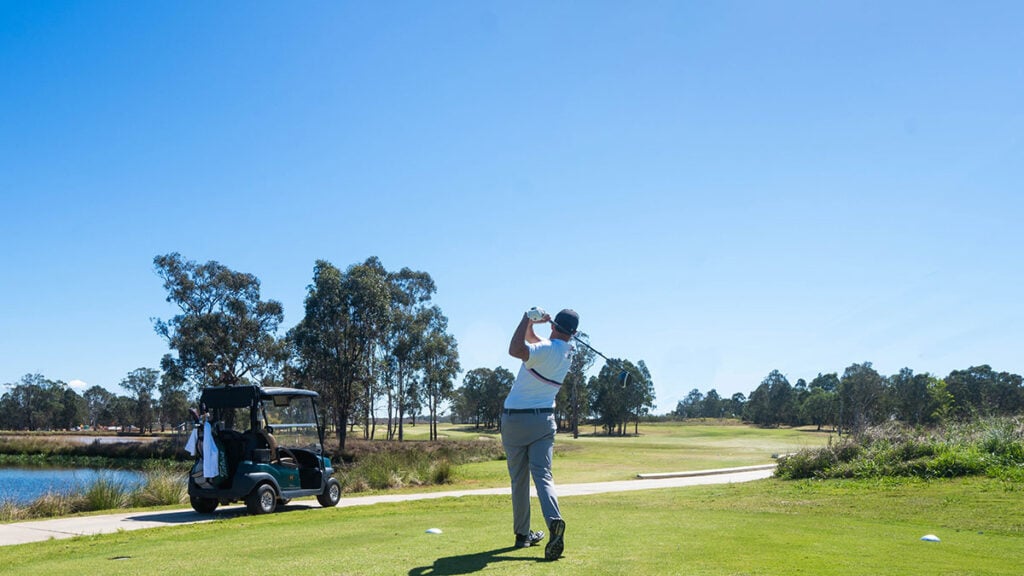Tom Lehman was on the phone from Arizona ready to discuss something he hadn’t discussed publicly before – that he had been diagnosed with colon cancer. One small detail: The diagnosis was 23 years ago.
Why had he never said anything?
“It really didn’t seem to me it was worth discussing,” he said this week.
That Lehman, now 58 and playing the PGA Tour Champions, didn’t divulge a health scare in the midst of his ascent to the top of the Official World Golf Rankings is mostly a reflection of good fortune. The cancer didn’t stand in his way of enjoying a career season in which he topped the US PGA Tour money list and won his lone Major at the 1996 British Open, and he has been healthy since. But it also says something about Lehman, who has enough perspective to recognise when an experience is deserving of sympathy and when it is not.
“I never had to deal with Stage 4 cancer or go through chemo or any of those awful things,” Lehman said. “Mine was early Stage 1 cancer, so why should I make a big deal out of it?”
If there’s a reason now it’s because Lehman is set to play in the PGA Tour Champions’ Cologuard Classic this week. As it happens, Cologuard, an at-home colon cancer screening product, was developed by the Mayo Clinic’s Dr David Ahlquist, who had diagnosed Lehman’s condition decades earlier. It explains why to Lehman, early detection is more than a catchy phrase.
But back up for a moment, to spring 1995. Lehman was 36 and had already been a professional for a decade, toiling on mini-tours and what is now the Web.com Tour before finally breaking through for his first US PGA Tour win at the 1994 Memorial. After a promising run-up to the ‘95 Masters, Lehman was contending with an assortment of aches and pains at Augusta when he resorted to taking Advil – something he rarely did – three days in a row. He began to bleed internally, which led Lehman to place a call to the Mayo Clinic. Ahlquist and his team discovered some polyps in Lehman’s colon that proved to be malignant. Throughout all of this, Lehman played in his third Masters and finished 40th.
“I think I played the Masters with a bit of a cloud over my head,” Lehman said. “I’m not much of a worrier. I’ve never really been much of an anxious person, so the whole thing was tougher on my wife. I still thought whatever it was it had to be really early.”
He was right. Shortly after the Masters, Lehman had the polyps removed, and after missing a month of action, he returned to win the Colonial in his second start back. Even in taking the original diagnosis well, he felt unburdened.
“That says a lot about perspective because I remember being very freed up,” he said. “I’ve always felt having a good perspective on life leads to playing great golf.”
In the intervening years, Lehman said his cancer scare has rarely weighed on him, save for the awful concoction he has to drink for his annual colonoscopy. But the alternative, he acknowledges, is much worse.
“For me the scary part is when you think about the percentages,” Lehman said. “When they catch the cancer in an early stage, like I had it, the survival rate is 98 percent. When it gets beyond the colon, it goes down to something like 2 percent. What if I didn’t take that Advil that led to the bleeding? At the time I was 36, and I never would have gone to get a colonoscopy. It would have just grown and grown and grown … Even when you have good health you realise you need some good breaks in life.”




